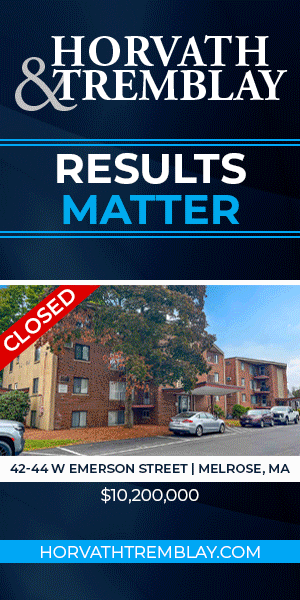Awaiting MA Supreme Judicial Court’s Eaton Decision, Real Estate Industry Sitting on a Volcano
March 06, 2012 — By By Edward M. Bloom
BOSTON — As Tolkien’s classic trilogy, Lord of the Rings,” draws to a close, Frodo stands at the lip of Mt. Doom to throw the powerful ring into the volcano and thus destroy it. As the ring sinks into the lava, the volcano erupts,
threatening the lives of Frodo and his companion. Like the brave little hobbit, the real estate industry, including homeowners, mortgage lenders and the real estate bar, sits anxiously on a volcano entitled Eaton v. FNMA currently pending before the Massachusetts Supreme Judicial Court. If the SJC upholds the Superior Court holding and the decision is applied retroactively, the volcano will erupt and the effect on Massachusetts real estate titles will be incalculable.
Although there is no Massachusetts law to support the Superior Court judge’s ruling in Eaton, she held that a mortgage foreclosure was invalid because the foreclosing mortgagee did not possess the promissory note at the time of the foreclosure. While conceding that Massachusetts common law has recognized that the note and mortgage can be separately assigned, she concluded the two instruments must be reunited to effectively foreclose the mortgage. She relied on two cases from the 1850’s and a case from 1917 which all prevented a mortgage holder from foreclosing because the note in each instance, which was held by a separate individual, had been paid. These cases, rather than standing for the proposition that the holder of a mortgage must also possess the note to foreclose, instead reflect a rule that once the debt secured by a mortgage has been paid in full, the mortgage holder may not foreclose its mortgage because no debt is owed.
Should the SJC uphold the lower court’s ruling and, as in its Ibanez decision, conclude that its holding applies retroactively, every real estate title in Massachusetts that has a foreclosure in its back title will become unmarketable because there is no way for anyone examining record title to determine if a foreclosing mortgagee possessed the note at the time of foreclosure.
Massachusetts law does require that assignments of mortgages be recorded, but there is no such requirement regarding the transfer of notes. In fact, in today’s modern lending environment with a secondary mortgage market, securitized loans, and the Mortgage Electronics Registration System (“MERS”), it is almost impossible to determine from an examination of title to a specific property who holds the note. In the Eaton case, the original mortgage was held by MERS, who then assigned the mortgage to Green Tree Servicing, LLC, which was acting as a servicer for FNMA. Bank United was the original holder of the note which then sold the note to FNMA. When Green Tree
foreclosed, it did so on behalf of FNMA, the actual owner of the note. Yet none of these facts could be determined from the title records which simply reflected a mortgage to MERS that was then assigned to Green Tree.
The only argument for demanding unity of the note and mortgage is the theoretical possibility that a mortgage holder can foreclose on a debtor’s property and the note holder can subsequently make an independent claim for the same debt evidenced by the note. Proponents of the unity theory overlook the fact no such claim has arisen or occurred in Massachusetts. In today’s modern lending market, it is inconceivable that a foreclosing mortgagee is not acting at the direction of the note holder or the note holder’s servicer.
Should the SJC nevertheless rule the note and mortgage must be united to properly foreclose a mortgage, one can only hope the Court will do so on a prospective basis, as the amicus briefs of such entities as the Real Estate Bar Association for Massachusetts and American Land Title Association have urged. Even then, the Court’s holding would have to defer its effective date to allow the Legislature sufficient time to enact legislation to address the means of reflecting ownership of notes in a manner that would be reflected in the title records.
And so the real estate industry nervously awaits the SJC’s decision: Will the Superior Court ruling be upheld on a retroactive basis. bringing chaos and paralysis to the industry (not only in
Massachusetts but across the country)? Will the Court overrule the lower court decision and reject the proposition of unity of the note and mortgage? Or will the Court adopt the proposition but only apply it prospectively? The seismic tremors are increasing as the days and weeks pass by and the real estate industry awaits an outcome that is beyond its control – as is nature when a volcano erupts






